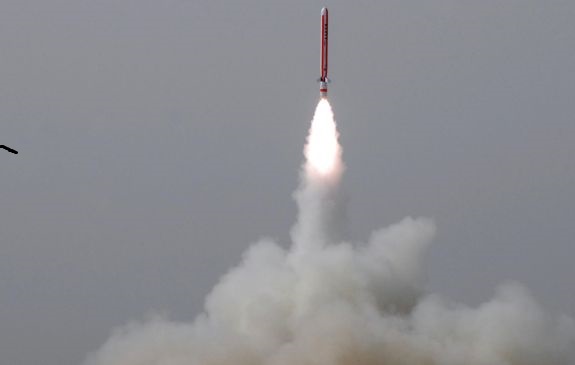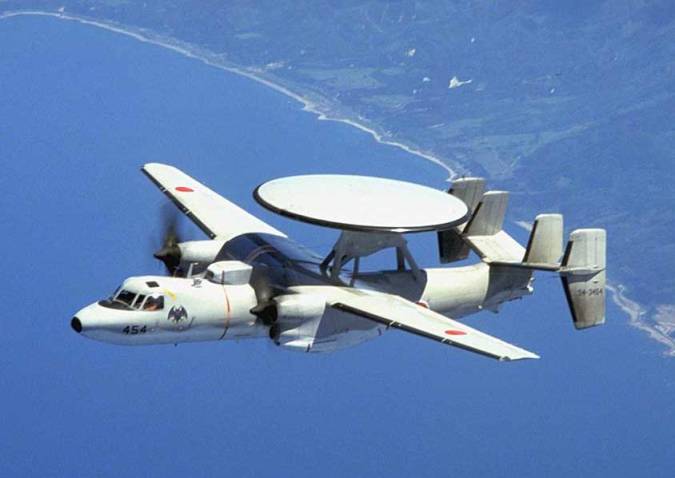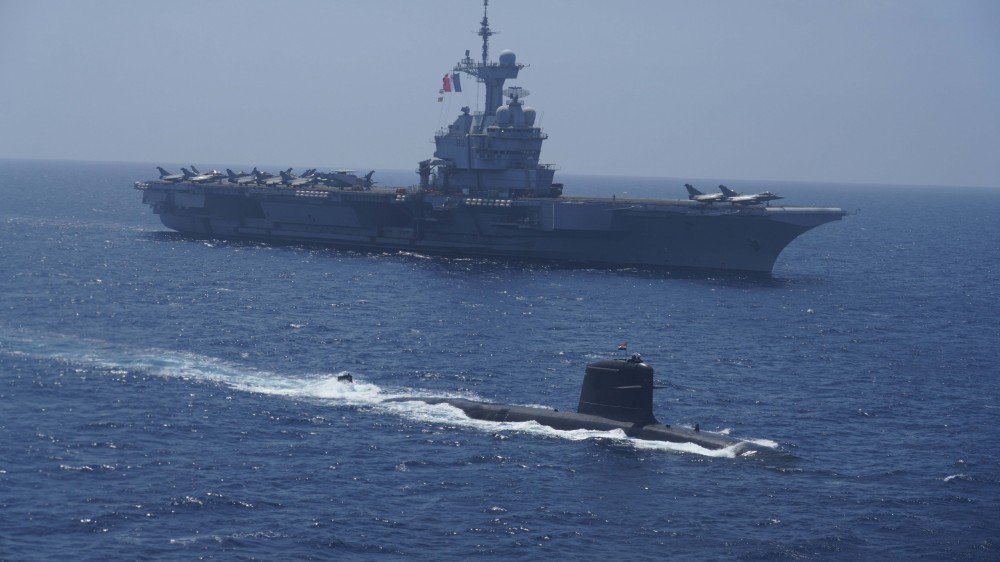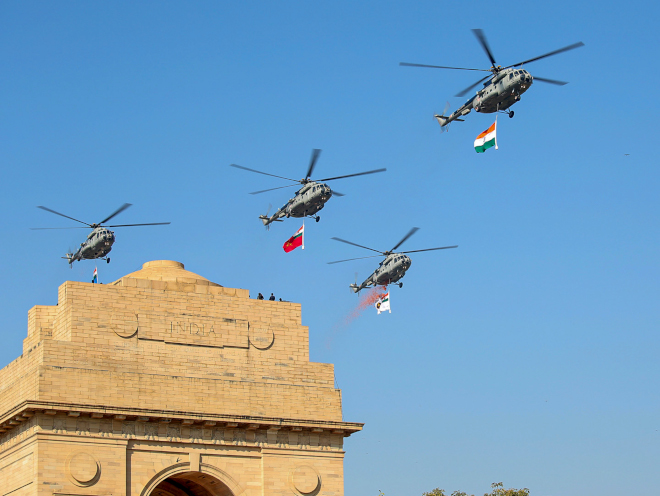
The Babur cruise missile of Pakistan. A file photo
ISLAMABAD/WASHINGTON (PTI): Pakistan is developing sea-based missiles and expanding its interest in tactical nuclear warheads to give it a "second-strike" capability if a catastrophic nuclear attack destroyed all its land-based weapons, according to a media report.
The next step of Pakistan's strategy includes an effort to develop nuclear warheads suitable for deployment from the Indian Ocean, either from warships or from one of the country's five diesel-powered Navy submarines, The Washington Post reported quoting Pakistani and Western analysts.
In a sign of that ambition, Pakistan in 2012 created the Naval Strategic Force command, which is similar to the air force and army commands that oversee nuclear weapons.
"We are on our way, and my own hunch is within a year or so, we should be developing our second-strike capability," the paper quoted Shireen M. Mazari, a nuclear expert and the former director of the Institute of Strategic Studies Islamabad, a hawkish Pakistani government-funded think-tank.
Instead of working to enhance the range of its missiles, Pakistan is developing shorter-range cruise missiles that fly lower to the ground and can evade ballistic missile defences, analysts say.
Pakistan has repeatedly tested its indigenously produced, nuclear-capable, Babur cruise missile, which has a range of 640 km and can strike targets at land and sea, military officials said.
In 2011 and last year, Pakistan also tested a new tactical, nuclear-capable, battlefield missile that has a range of just 60 km.
"This is the miniaturisation of warheads," said Mansoor Ahmed, a strategic studies and nuclear expert at Quaid-i-Azam University in Islamabad.
The development of nuclear missiles that could be fired from a Navy ship or submarine would give Pakistan "second- strike" capability if a catastrophic nuclear exchange destroyed all land-based weapons, the report noted.
Pakistan's nuclear push comes amid heightened tension with US intelligence and congressional officials over the security of the country's nuclear weapons and materials, the Post said.
The paper had reported in September 2013 that US intelligence officials had increased surveillance of Pakistan in part because of concerns that nuclear materials could fall into the hands of terrorists.
State Department spokeswoman Jen Psaki, asked if the US was concerned about a sea-launched Pakistani weapon, said it was up to Pakistan to discuss its programmes and plans.
But she said, "We continue to urge all nuclear-capable states to exercise restraint regarding nuclear and missile capabilities. We continue to encourage efforts to promote confidence-building and stability and discourage actions that might destabilise the region."
At the same time, the acceleration of Pakistan's nuclear and missile programmes is renewing international concern about the vulnerability of those weapons in a country home to more than two dozen Islamist extremist groups, the report said.
"The assurances Pakistan has given the world about the safety of its nuclear programme will be severely tested with short-range and sea-based systems, but they are coming," said Michael Krepon, co-founder of the Stimson Center, a Washington-based global security think tank.
Western officials have been concerned about Pakistan's nuclear programme since it first tested an atomic device in 1998. Those fears have deepened over the past decade amid political tumult, terror attacks and tensions with India, the report said.
That instability was underscored this month, as anti- government protests in the capital appeared to push Prime Minister Nawaz Sharif's government to the brink of collapse.
For more than a decade, Pakistan has sent signals that it's attempting to bolster its nuclear arsenal with "tactical" weapons - short-range missiles that carry a smaller warhead and are easier to transport.
Over the past two years, Pakistan has conducted at least eight tests of various land-based ballistic or cruise missiles that it says are capable of delivering nuclear warheads.
It is unclear how much direct knowledge the government has about the country's nuclear weapons and missile-development programmes, which are controlled by the powerful military's Strategic Planning Directorate, the paper said.
But the prime minister is the chairman of Pakistan's National Command Authority, a group of civilian and military officials who would decide whether to launch a nuclear weapon.
Pakistani military officials declined to comment on the nuclear programme.
Analysts say much about Pakistan's programme remains a mystery. Western experts, for example, are divided over whether Pakistan has the ability to shrink warheads enough for use with tactical or launched weapons.
"They may have done so, but I can't imagine it's very reliable," said Jeffrey Lewis, a nuclear and non-proliferation scholar at the Monterey Institute of International Studies.
Maria Sultan, chairwoman of the Islamabad-based South Asian Strategic Stability Institute, an organisation with close links to Pakistani military and intelligence officials, said the short-range missile is designed as a signal to India's military.
"We are saying, 'We have target acquisition for very small targets as well, so it's really not a great idea to come attack us,'?" Sultan said.
"Before, we only had big weapons, so there was a gap in our deterrence, which is why we have gone for tactical nuclear weapons and cruise missiles," the report quoted her as saying.
 Previous Article
Previous Article Next Article
Next Article













The Indian Air Force, in its flight trials evaluation report submitted before the Defence Ministry l..
view articleAn insight into the Medium Multi-Role Combat Aircraft competition...
view articleSky enthusiasts can now spot the International Space Station (ISS) commanded by Indian-American astr..
view article